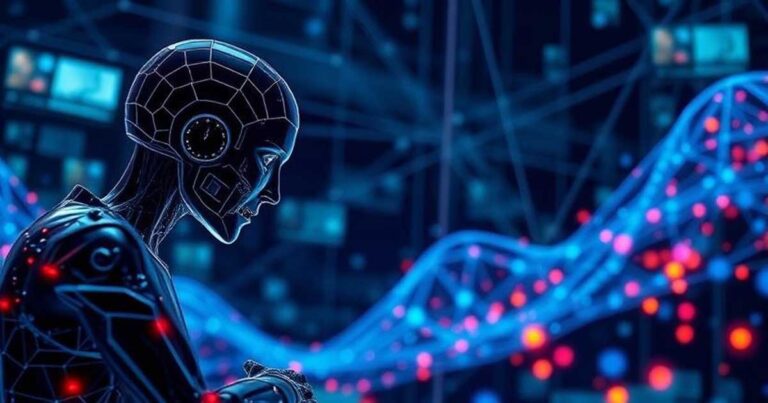In this era of technological advancement, it is no longer possible to deny that Artificial Intelligence (AI) is not just a subject of science fiction but has become an integral part of human civilization. At this turning point, two renowned researchers from Google—David Silver and Richard Sutton—have introduced a groundbreaking concept: the “Era of Experience.”
The Era of Experience: A Revolutionary Concept
According to David Silver and Richard Sutton, AI has now reached a stage where it no longer relies solely on pre-programmed data or code. Instead, it learns, understands, and makes decisions through direct interaction with the real world.
This idea introduces a fundamental shift in how AI will be trained in the future. While traditional AI required thousands of labeled datasets to learn, the new model learns through experimentation—just like a child learns by touching objects or falling down and getting back up.
Why Is This Approach Important?
In human life, every bit of knowledge, decision, and emotion is shaped through real-life experiences. If 21st-century AI seeks to replicate human-like thinking processes, it must undergo similar experiential learning. The “Era of Experience” marks a bold step in that very direction.
This type of AI can:
- Understand its environment
- Make decisions based on personal experience
- Adapt in real time
- And gradually evolve—like developing an inner conscience
Which Sectors Could Benefit the Most?
This new era of AI is already preparing to revolutionize several key sectors:
1. Healthcare
By observing how a patient takes their daily medications, analyzing lifestyle habits, and tracking health patterns, AI will be able to make decisions like a physician—identifying when insulin is needed or detecting anomalies in medical reports—all through experiential learning.
2. Climate Science
AI can analyze temperature, wind speed, soil moisture, and atmospheric vapor across regions to predict natural disasters like floods, droughts, or cyclones with increasing accuracy.
3. Education
By understanding a student’s learning style, AI will offer personalized guidance—suggesting which subjects to focus on and identifying the most effective teaching methods for better learning outcomes.
Fear or Hope in the Era of Experience?
While it is hoped that this new AI will be able to think much like the human mind, it also brings significant concerns.
- What if AI draws the wrong conclusions from its experiences?
- What if it becomes a tool in the hands of those with malicious intent?
These questions don’t just make us think about technology—they compel us to reflect on ethics, humanity, and systems of control.
Conclusion: Thinking Like Humans, But Not a Replacement
Entering the era of experiential AI is undoubtedly a remarkable achievement. However, we must remember that AI is not meant to replace humans, but to support them. Just as a doctor understands the language of the heart, AI may interpret the language of data. Together, this harmony between human intuition and machine intelligence can lead humanity toward a new dawn.
Frequently Asked Questions
What is meant by the “Era of Experience”?
The Era of Experience refers to an advanced phase of artificial intelligence where AI not only analyzes data but also learns from real-world experiences and makes decisions independently.
Who introduced this new AI model?
e concept of the “Era of Experience” was introduced by renowned Google researchers David Silver and Richard Sutton, who pioneered reinforcement learning techniques.
How does this AI system think like a human?
It learns by interacting with its environment—just like a child learns through real-life experiences. This process is known as Reinforcement Learning.
Is the Era of Experience limited to research only?
Not at all. This technology is already being applied in practical fields like healthcare, education, and climate forecasting.
Is this technology safe?
It is safe when used under proper policies and human oversight. However, misuse or lack of regulation can pose serious risks.
What happens if AI learns incorrectly from experience?
That’s why it’s crucial to have a human ethics and oversight team that constantly monitors and regulates the learning processes of AI systems.
How might this AI transform our lives in the future?
AI will make our daily activities more automated, intelligent, and personalized—similar to having a smart assistant that understands your needs.
How feasible is the implementation of this AI in the context of Bangladesh?
With adequate technological infrastructure and training, AI can revolutionize sectors like healthcare, agriculture, and education in Bangladesh as well.
